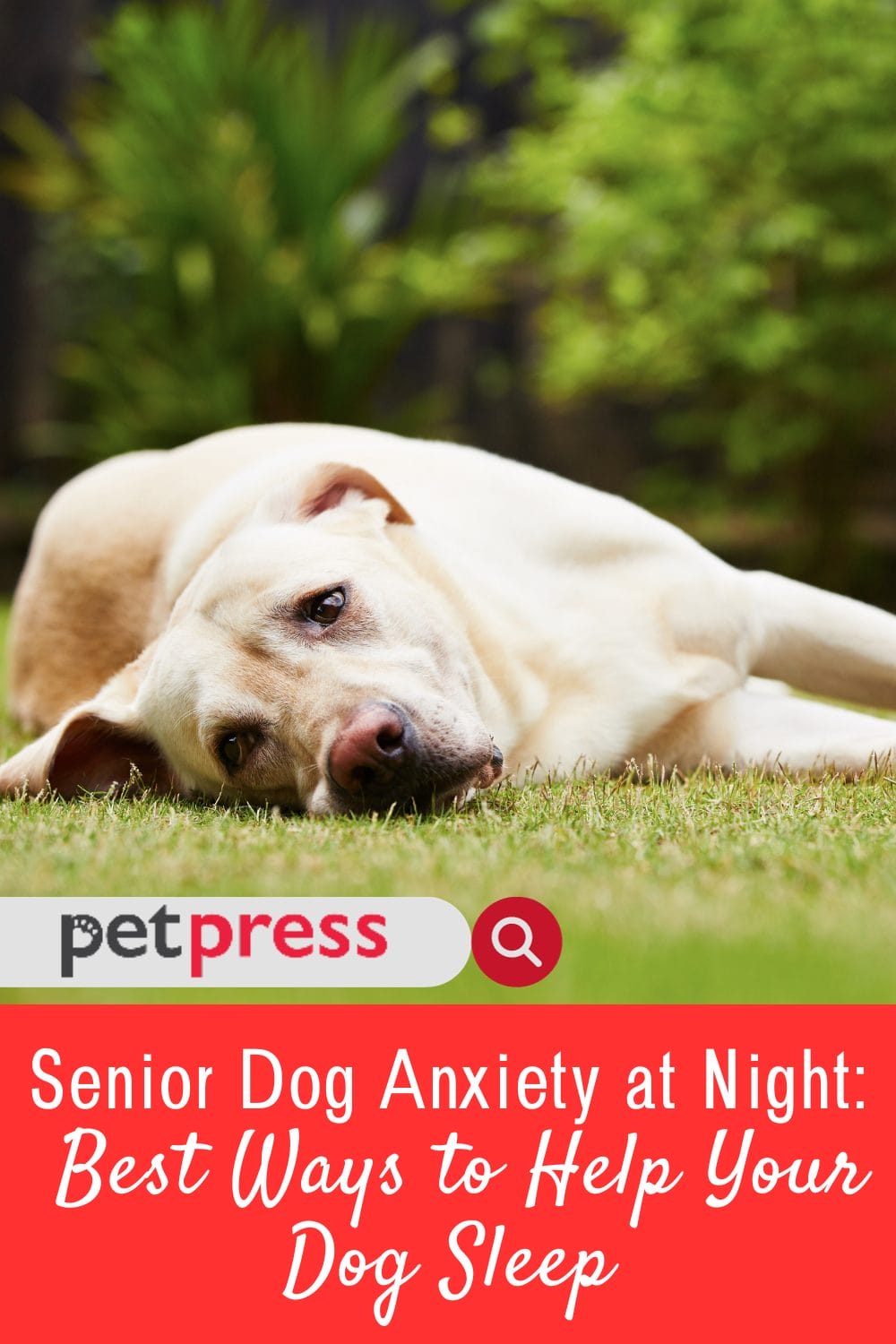
Caring for an older dog can bring immense joy, but it also comes with its own challenges. One such challenge is senior dog anxiety at night, which can greatly impact their health and well-being.
In this blog post, let’s delve into the causes of nighttime anxiety in senior dogs and share some friendly tips to help them enjoy a peaceful sleep.
Understanding Senior Dog Anxiety at Night
Senior dogs may experience anxiety at night due to various factors, such as cognitive decline, discomfort, or environmental changes. This anxiety can manifest as restlessness, pacing, excessive barking, or even accidents in the house.
The underlying causes of dog’s anxiety
Identifying the underlying cause of your dog’s anxiety is crucial in finding effective solutions. Here are some common causes to consider:
- Separation anxiety: Dogs can experience anxiety when left alone or separated from their owners. They may exhibit destructive chewing, excessive barking, or soiling the house.
- Fear or phobias: Some older dogs may develop phobias or fears due to past traumatic experiences or sudden environmental changes.
- Past traumatic experiences: Senior dogs may have had a traumatic experience in their past, causing them to develop anxiety at night.
- Changes in routine or environment: Dogs thrive on routine and familiar surroundings, but any significant changes to their routine or environment, such as moving to a new house, can trigger anxiety.
- Medical conditions: Medical conditions like thyroid imbalances, cognitive decline, or chronic pain can cause anxiety in dogs. Consult a veterinarian to rule out underlying health issues.
If you’re uncertain about the cause or if your dog’s anxiety persists despite your efforts, seeking guidance from a professional dog trainer or a veterinarian behaviorist is highly recommended. They can provide further assistance and support.

Creating a Calming Environment
Ensuring your senior dog has a comfortable and calming sleeping space is essential. Here are some effective ways to achieve this:
- Provide a comfortable sleeping area. Ensure your dog has a cozy and comfortable bed with supportive bedding. Choose a bed that suits the dog’s size and preferences, whether a soft cushion or a memory foam mattress.
- Use white noise or calming music. Playing soothing sounds, such as white noise or classical music, can help drown out any disturbing noises that may trigger anxiety in your dog. Even specially designed playlists and apps are available for calming dogs.
- Dim the lights: As evening approaches, dimming the lights in your home can create a relaxing atmosphere. Bright lights can be stimulating and make it harder for your dog to wind down and fall asleep. Consider using soft lighting or even nightlights to provide a peaceful ambiance.
- Promote a quiet environment. Minimize loud or sudden noises that may startle your dog. Close windows to reduce external noise, use curtains or blinds to block out bright lights from outside, and keep the TV volume low. A quiet environment can help your dog feel more secure and at ease.
- Utilize calming scents. Certain scents, like lavender or chamomile, have calming effects on dogs. Try using essential oil diffusers or sprays designed for dogs to create a soothing atmosphere. However, always ensure the scents are pet-safe and consult a veterinarian.
- Consider a comfortable crate. Provide a well-ventilated crate with a cozy bed inside if your dog finds comfort in a crate. Large crates where the dog can stand, turn around, and lie comfortably promote a sense of security for dogs.
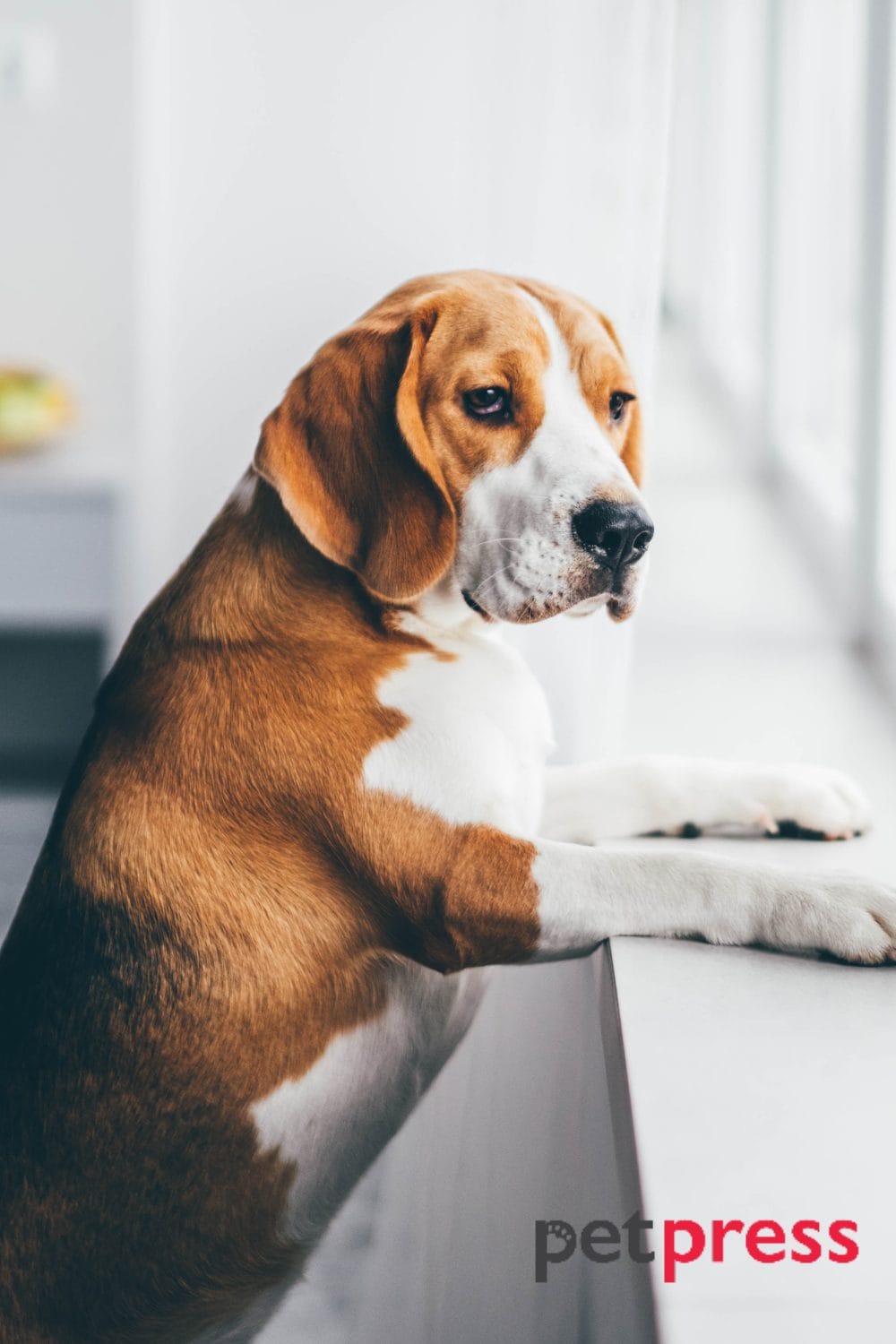
Establishing a Bedtime Routine
Senior dogs thrive on routine, so establishing a consistent bedtime routine can greatly reduce anxiety at night. Engage in a relaxing activity before bedtime, such as gentle play or a short walk.
Follow this with consistent actions, such as brushing their teeth, giving them a treat, and settling them into their bed. This routine will signal your dog that it’s time to wind down and prepare for sleep.
Managing Cognitive Decline
Senior dogs, just like humans, can experience cognitive decline as they age. This decline can contribute to anxiety at night. Consider incorporating mental stimulation activities during the day, such as puzzle toys or interactive games, to keep their minds engaged.
Also, consult your veterinarian about supplements or medications that may help manage cognitive decline and anxiety.
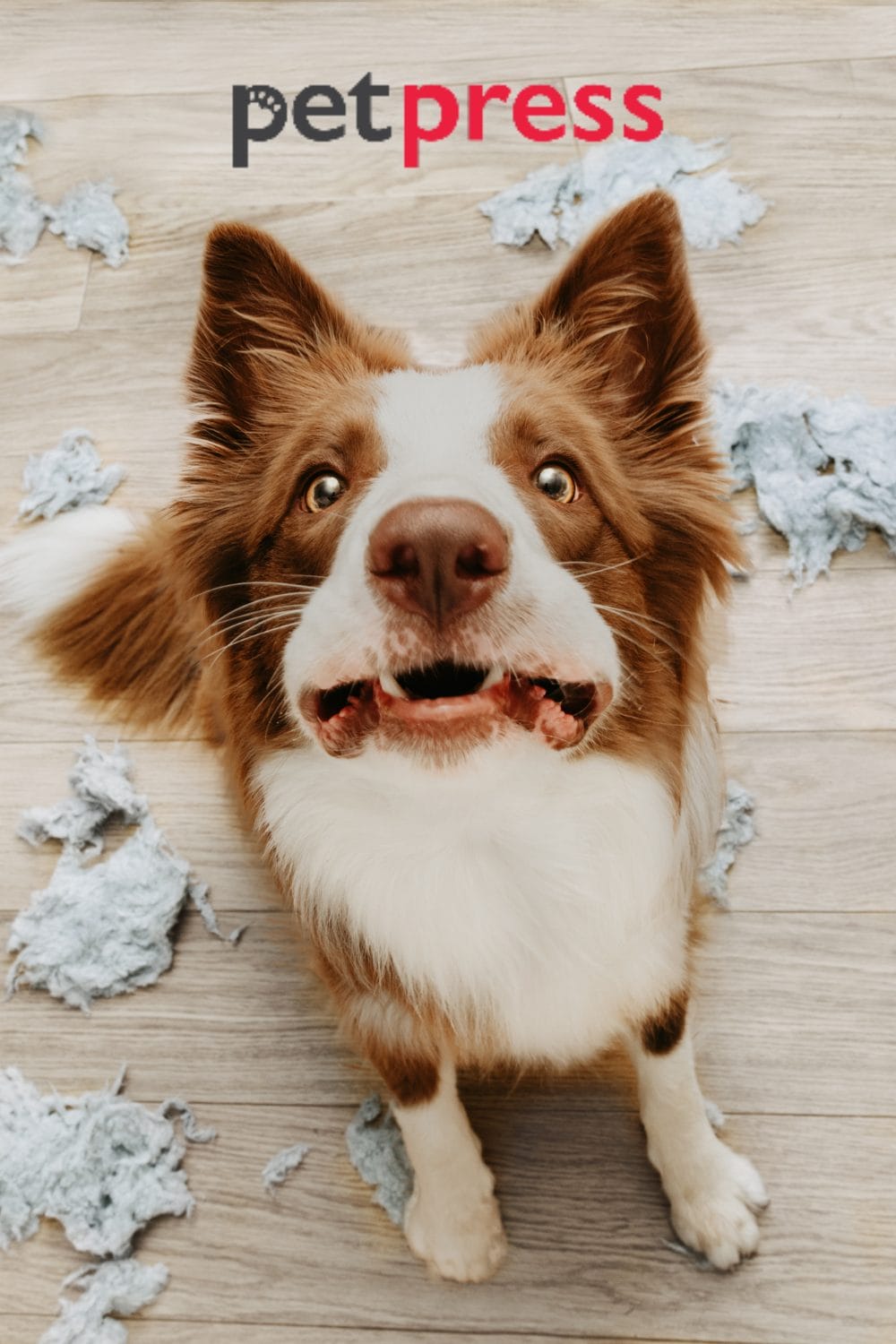
Addressing Physical Discomfort
Pain and discomfort from conditions like arthritis can intensify anxiety in senior dogs, making it difficult for them to settle at night. Regular veterinary check-ups are crucial to identifying and managing any underlying health issues.
The veterinarian may recommend joint supplements, medication, or alternative therapies to alleviate your dog’s discomfort and improve their sleep quality.
When addressing physical discomfort in senior dogs, there are several options to consider to alleviate their pain and improve sleep quality:
- Joint supplements: Joint supplements, such as glucosamine and chondroitin, can help support joint health and alleviate symptoms of arthritis or joint stiffness. These supplements promote joint lubrication and reduce inflammation, relieving your dog’s discomfort.
- Medication: In more severe cases, your veterinarian may prescribe medication to manage pain and inflammation in senior dogs. Always consult your veterinarian before administering any medication to ensure it is safe for your dog.
- Alternative therapies: Acupuncture, massage therapy, and chiropractic care can also benefit senior dogs experiencing physical discomfort. Consult a certified professional trained in these therapies to determine the best course of action for your dog.
- Weight management: Maintaining a healthy weight reduces stress on your dog’s joints. Excess weight can exacerbate discomfort and contribute to arthritis. Consult your veterinarian to determine your senior dog’s appropriate diet and exercise plan to help manage their weight and improve their overall well-being.
- Warmth and comfort: A warm, comfortable area can help alleviate joint pain and encourage better sleep. Consider using orthopedic beds or heated pads for dogs with arthritis or joint issues. These can provide additional support and soothing warmth to ease discomfort.
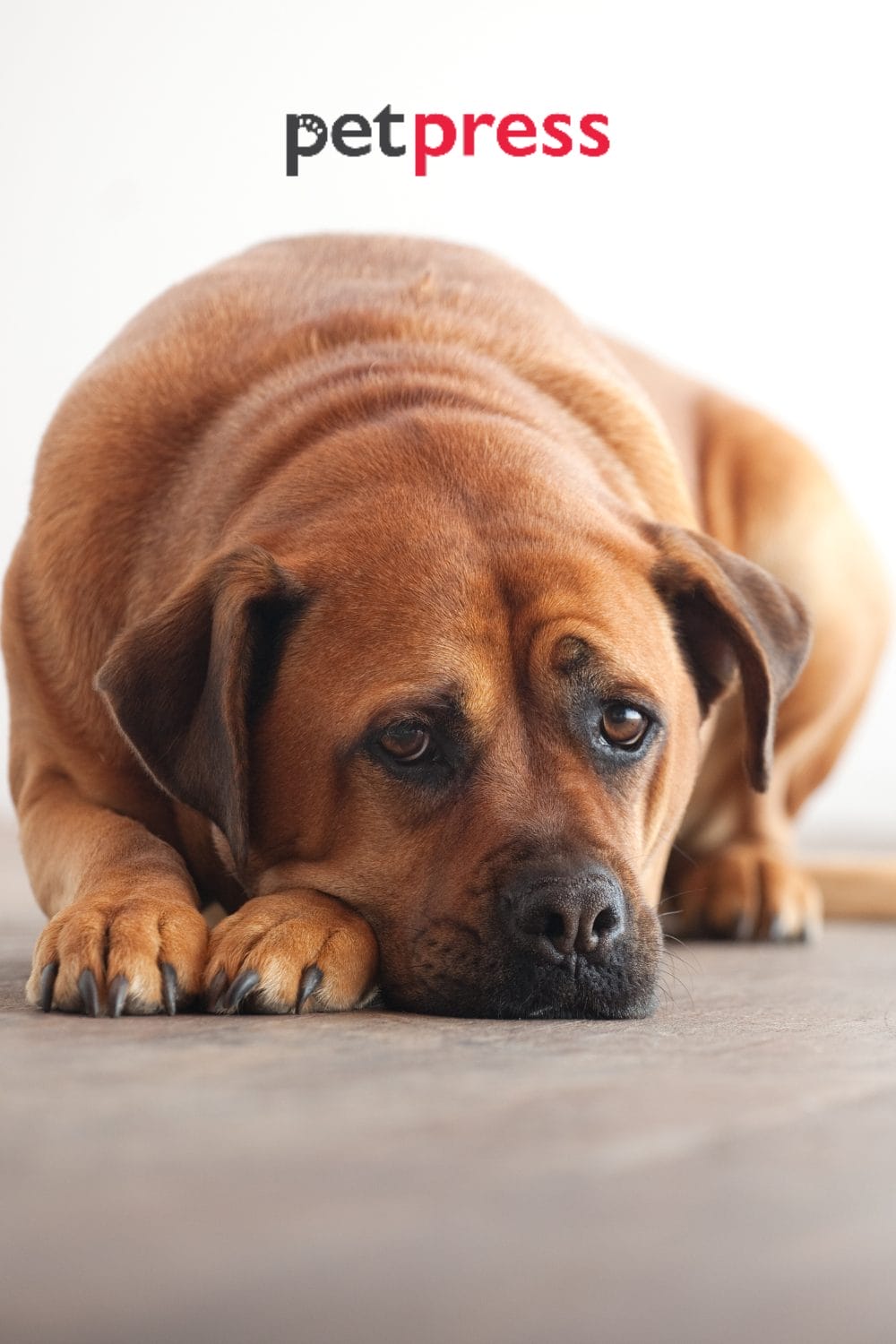
In a wrap!
By understanding the causes of senior dog anxiety at night and implementing the strategies discussed in this blog post, you can help your furry friend find the peaceful sleep they deserve.
Remember, consistency and patience are key when managing anxiety in senior dogs. With your love and care, your senior dog can enjoy restful nights and wake up refreshed for more adventures together.
If you found this blog post helpful, please share it with your fellow dog owners. We are sure that they too would appreciate the insights and tips on managing senior dog anxiety at night.
Share this post on social media or email it to a friend. Remember, a well-informed community is a happier community. Thank you for reading and sharing!
Frequently Asked Questions (FAQs)
Senior dog anxiety at night can be caused by cognitive decline, discomfort, environmental changes, or separation anxiety.
Provide a cozy bed, use white noise or calming music, and dim the lights in the evening to create a more relaxing atmosphere.
A consistent bedtime routine helps signal your senior dog that it’s time to wind down and prepare them for sleep.
Engage your senior dog in mental stimulation activities and consult with your veterinarian about supplements or medications that may help manage cognitive decline and anxiety.
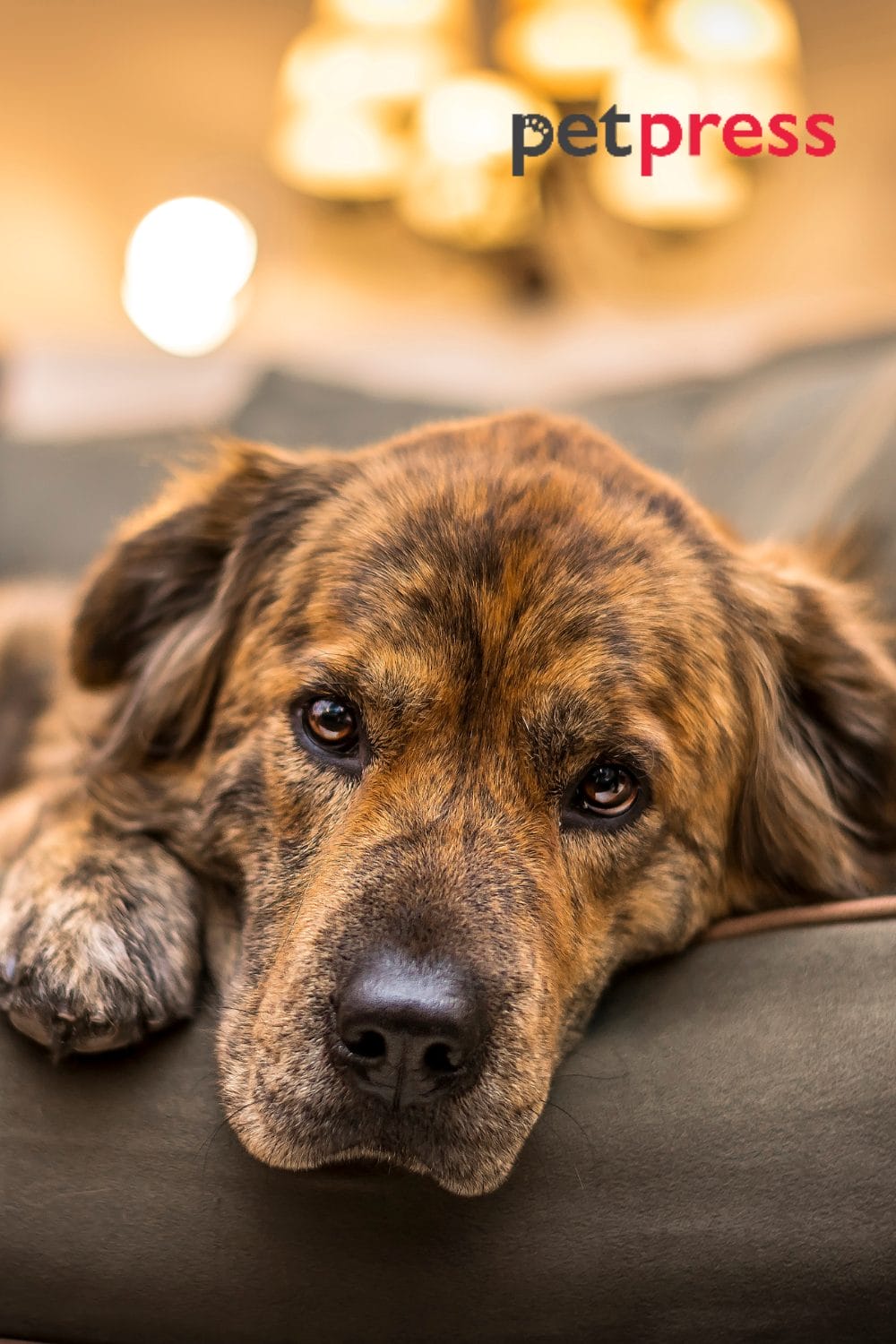
Related Posts:
Express Affection for Your Pooch – 50+ Best Love Your Dog Quotes
- Does Cat Litter Melt Ice? The Complete Guide to Winter Safety - January 30, 2026
- Happy Tail Dogs: Understanding This Common Canine Condition - January 29, 2026
- How Cold Can Outdoor Cats Handle? Feline Winter Safety - January 27, 2026


GIPHY App Key not set. Please check settings